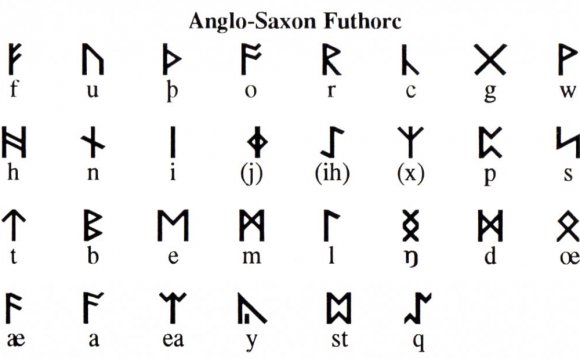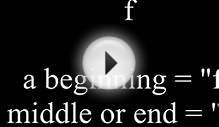
The language spoken in England from roughly 500 to 1100. Old English is one of the Germanic languages derived from a prehistoric Common Germanic, which was originally spoken in southern Scandinavia and the northernmost parts of Germany.
Old English is also known as Anglo-Saxon (from the names of two of the Germanic tribes that invaded England during the fifth century). See Examples and Observations, below.
Also see:
Examples and Observations:
- The Lord's Prayer in Old English
Fæder ure
ðu ðe eart on heofenum
si ðin nama gehalgod
to-becume ðin rice
geweorþe ðin willa on eorðan swa swa on heofenum.
Urne ge dæghwamlican hlaf syle us to-deag
and forgyf us ure gyltas
swa swa we forgifaþ urum gyltendum
ane ne gelæde ðu us on costnunge
ac alys us of yfle.
(The Lord's Prayer ["Our Father"] in Old English) - Old English Vocabulary
"The extent to which the Anglo-Saxons overwhelmed the native Britons is illustrated in their vocabulary. . . . Old English (the name scholars give to the English of the Anglo-Saxons) contains barely a dozen Celtic words. . . ."It is impossible . . . to write a modern English sentence without using a feast of Anglo-Saxon words. Computer analysis of the language has shown that the 100 most common words in English are all of Anglo-Saxon origin. The basic building blocks of an English sentence-the, is, you and so on-are Anglo-Saxon. Some Old English words like mann, hus and drincan hardly need translation."
(R. McCrum et al., The Story of English, 1986)
- Old English Grammar
"Languages which make extensive use of prepositions and auxiliary verbs and depend upon word order to show other relationships are known as analytic languages. Modern English is an analytic, Old English a synthetic language. In its grammar, Old English resembles modern German. Theoretically, the noun and adjective are inflected for four cases in the singular and four in the plural, although the forms are not always distinctive, and in addition the adjective has separate forms for each of the three genders. The inflection of the verb is less elaborate than that of the Latin verb, but there are distinctive endings for the different persons, numbers, tenses, and moods."
(A. C. Baugh, A History of the English Language, 1978)
- Old English and the Alphabet
"The success of English was all the more surprising in that it was not really a written language, not at first. The Anglo-Saxons used a runic alphabet, the kind of writing J.R.R. Tolkien recreated for The Lord of the Rings, and one more suitable for stone inscriptions than shopping lists. It took the arrival of Christianity to spread literacy and to produce the letters of an alphabet which, with a very few differences, is still in use today."
(Philip Gooden, The Story of English. Quercus, 2009) - Differences Between Old English and Modern English
"There is no point . . . in playing down the differences between Old and Modern English, for they are obvious at a glance. The rules for spelling Old English were different from the rules for spelling Modern English, and that accounts for some of the difference. But there are more substantial changes as well. The three vowels that appeared in the inflectional endings of Old English words were reduced to one in Middle English, and then most inflectional endings disappeared entirely. Most case distinctions were lost; so were most of the endings added to verbs, even while the verb system became more complex, adding such features as a future tense, a perfect and a pluperfect. While the number of endings was reduced, the order of elements within clauses and sentences became more fixed, so that (for example) it came to sound archaic and awkward to place an object before the verb, as Old English had frequently done."
(Peter S. Baker, Introduction to Old English. Wiley-Blackwell, 2003)
- Celtic Influence on English
"In linguistic terms, obvious Celtic influence on English was minimal, except for place- and river-names . . .. Latin influence was much more important, particularly for vocabulary . . .. However, recent work has revived the suggestion that Celtic may have had considerable effect on low-staus, spoken varieties of Old English, effects which only became evident in the morphology and syntax of written English after the Old English period . . .. Advocates of this still controversial approach variously provide some striking evidence of coincidence of forms between Celtic languages and English, a historical framework for contact, parallels from modern creole studies, and-sometimes-the suggestion that Celtic influence has been systematically downplayed because of a lingering Victorian concept of condescending English nationalism."
(David Denison and Richard Hogg, "Overview." A History of the English Language, ed. by Hogg and Denison. Cambridge Univ. Press, 2008)
MORE TRANSLATION VIDEO











